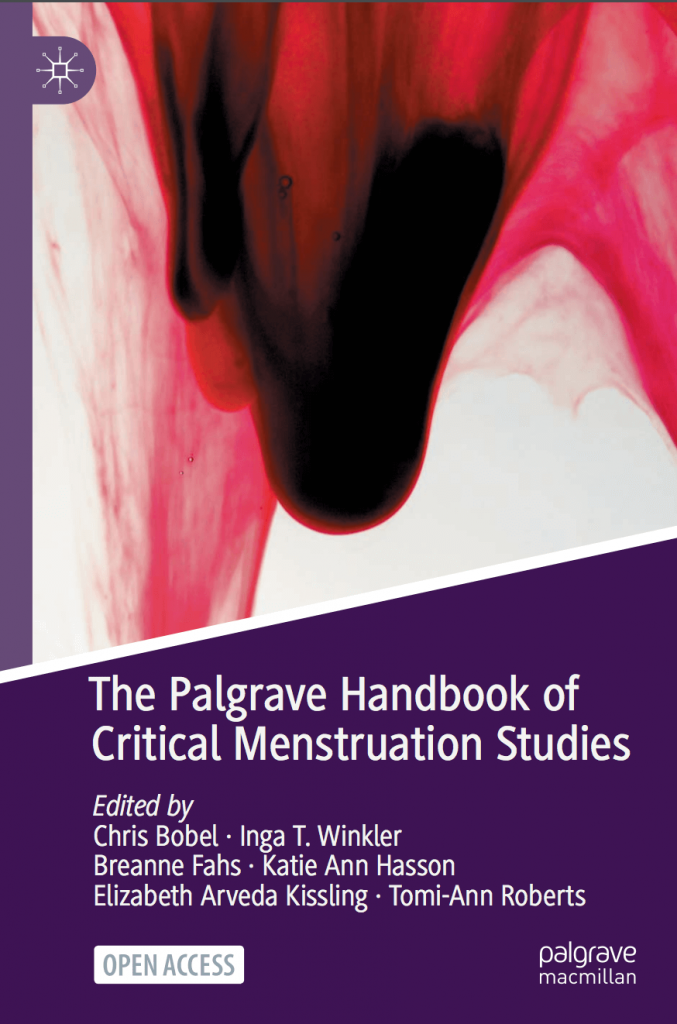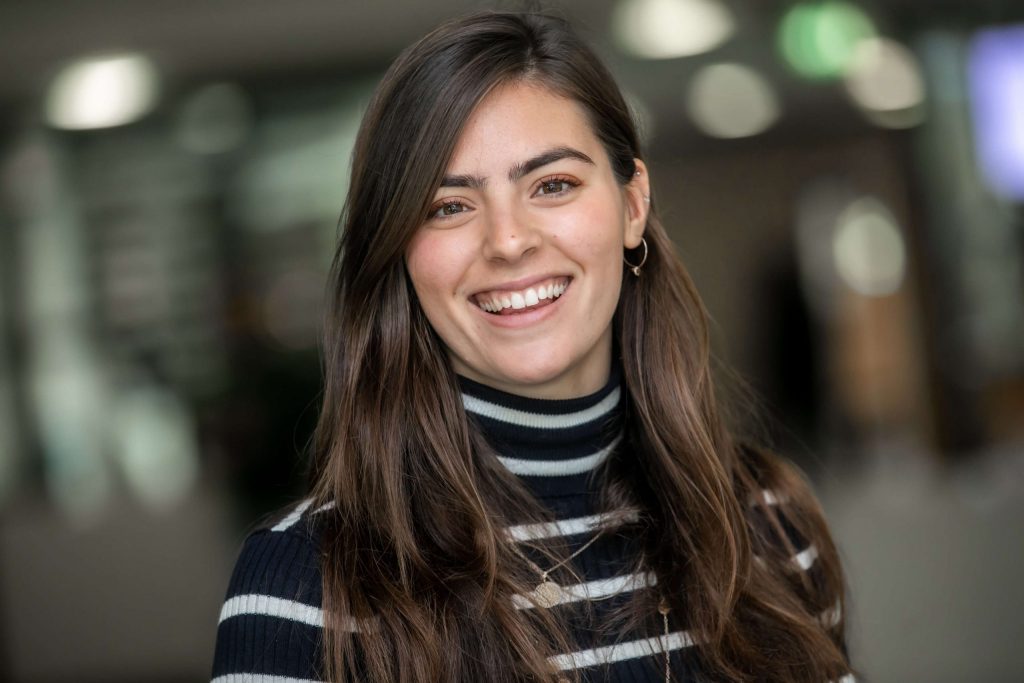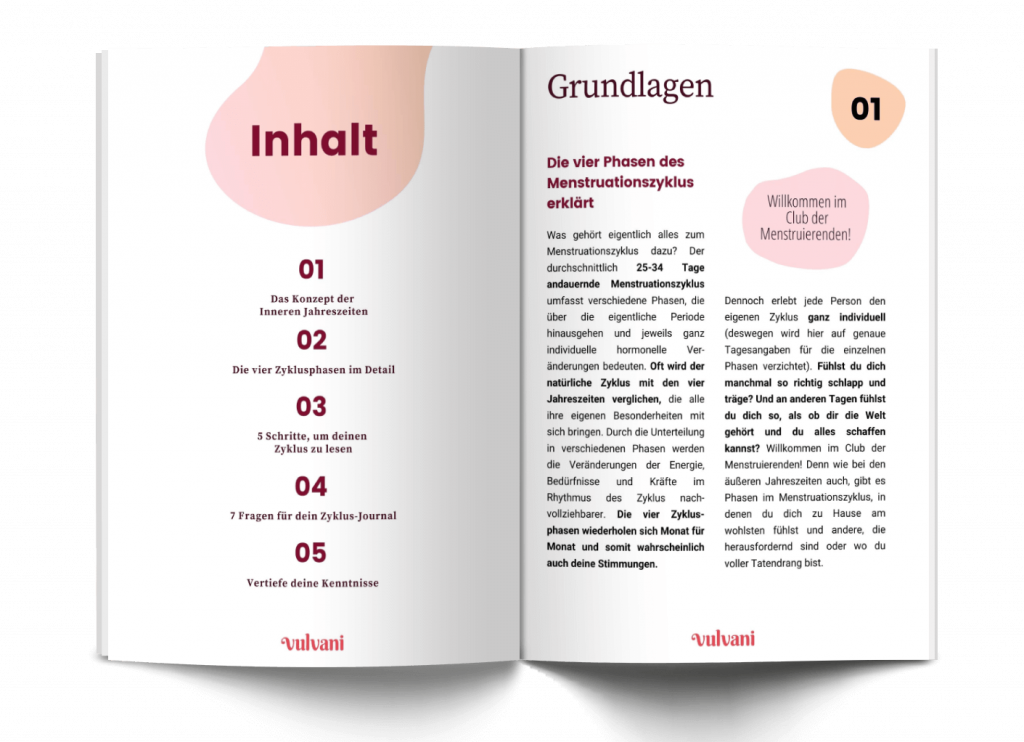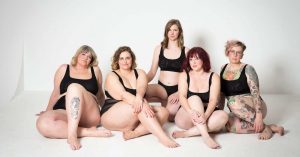
Discovering your menstruation as a spiritual practice
Yasmine understands her menstruation as a spiritual practice and shares in this interview how she is connecting more with her own body through cycle awareness.
Maria Carmen Punzi describes herself as a big fan of the menstrual cycle. So much that she is doing her PhD in menstrual health research at only 25 years old. She is a big inspiration to me and I am excited to be introducing her to all of you on this platform! In our interview she shares her personal journey of doing menstrual research, how she got started in the first place and what her dreams for the future of the period world are. Thank you so much, dear Maria Carmen, for the important work you are doing by trying to fill the research gap when it comes to periods. Cannot wait to read your PhD and to keep following along on your journey!
My name is Maria Carmen Punzi, I am a 25 years old Menstrual Health researcher and I’m originally Italian. I’ve been living in the Netherlands for the past four years, I’m a big sister of 4 brothers and… I am a big fan of the menstrual cycle 😉
I’ve always been interested in women’s rights. I still remember writing a school essay when I was 15 years old about the role of women in different societies. What really sparked my curiosity and passion for menstrual health research, however, was an article I came across in late 2015. It revolved around the practices and restrictions that some women in Western Nepal need to follow during menstruation. I started reading about menstruation… and I never stopped.
In the year 2016/2017, I was studying Global Business and Sustainability at the Rotterdam School of Management. As I learnt about the concept of social enterprises, I realised I was observing some of them doing very cool work in the menstrual space. From menstrual cups companies in Spain, to period underwear brands in the U.S., it seemed like a fascinating and understudied segment. I therefore decided to write my master thesis on how these social enterprises challenge the menstrual taboo through their products and advertising. At the time I interviewed 15 enterprises and fell in love with critical thinking and writing around menstruation.
After graduating, I kept learning and writing about periods. I joined the Menstrual Health Hub as Innovation Advisor and made more connections. The more time passed, the more passionate I felt! I met amazing people on the way, smart, challenging and fire-y! I am so grateful for their guidance and friendship, which exist to this day. In Spring 2018 I landed a job at PSI-Europe, a global health NGO providing sexual and reproductive health services around the world. It was one of the best experiences I ever had. I got to travel to their local offices and really gain expertise on the intersections between menstrual health and sexual and reproductive health (here to read more about it!).
As I said, I took my first steps in menstruated health research in late 2016. However, it was two years and a half later that I got the opportunity to apply for a 5-year PhD position. Essentially, I had the chance to pitch the Rotterdam business school to fund a 5 years research on social enterprises and the menstrual movement. I had never really stopped the menstrual health research since my master’s, but I knew it was time for the big jump. The topic is understudied and underfunded, so I took the leap! I am very glad it worked. In brief, I research the role of social entrepreneurs in the menstrual movement. I particularly study how they influence the way society sees menstruation, how they change the work of incumbent firms and how they collaborate with activists, policy makers and non-profit organisations.
So far, it’s been a great experience. I have combined writing (e.g. I have a chapter in the upcoming Handbook of Critical Menstruation Studies) with events (around periods in the Netherlands as well as social enterprises in the space). Being in the menstrual movement for the last three years made me realize that the products we use for menstruation deeply condition the way we feel about it. I am incredibly committed to share what I am learning along the way. That is why I created my Instagram profile @periodswithmariacarmen.

Simply put, I believe that menstrual cycle awareness, research and education can change the way we work on gender equality. Too often work positions, services and products are made only in men-shape. Bringing in the ebbs and flows of the menstrual cycle is a powerful move to overcome self-doubt, support women in asserting what they want and need and design a new, truly inclusive world. Why is it still lacking? Both men and women are taught from childhood that periods are something shameful, marginal, that only happens during the bleed. We are missing on the powerful stuff!
Acknowledging who came first and paved the way (Society for Menstrual Cycle Research, Menstrual Health Hub, Jennifer Weiss-Wolf among others), learn learn learn! There are so many resources available and it’s important to learn from the “giants” in our field. But the most important tip is to find your niche in the space. Like Jennifer Weiss-Wolf says, a menstrual lens can be applied to practically any aspect of the social world. What are you passionate about and how does that intersect with menstruation?
My mum taught me about it when I was about 10 years old, before I got my first period (luckily!). She told me a story about how your uterus is like a room for a baby. Every month your body does a cleaning spree and then throws away the dust, to keep the room always welcoming. And that’s how your period comes about! I am grateful I learned it this way and I never felt really ashamed about it.
Unsurprisingly, I love my menstrual cycle! It grounds me, it humbles me, and it teaches me so much! As I have learned about the phases, the superpowers and the self-care essentials needed for each phase, I feel more confident in my body and myself. I love how learning about menstrual cycles has brought me closer to the women in my family, my friends and my friends or my partner.
I think the most fascinating part about it is that the menstrual cycle is a reflection of the cyclicality of the world. From seasons to age stages, the menstrual cycle can be a wise teacher in realising that we cannot always go full speed without burning out. But we need to allow for both death and birth (check out the incredible Anna Buzzoni from Medulla to learn much more in depth about this).
I believe that in a capitalist society which values productivity above all, menstrual cycles can teach us that vulnerability, rest and self-awareness are the most powerful tools for a healthy life and healthy society. I think it can mend many broken relationships with ourselves, our partners and our friends. How to learn more? Start tracking!
If you do experience a menstrual cycle, start noticing how you feel physically, emotionally, energetically every day of your menstrual cycle. You know how women are judged for being inconsistent? When I started tracking, I couldn’t believe how consistent I actually am. Knowing how your body and emotions change during the four phases will reveal your strengths and vulnerabilities during the cycle. This will ultimately improve your life. Because you will be able to organise your meetings, work and self-care accordingly. For those who do not have a menstrual cycle but have people in their life with one, I think curiosity and open-mindedness is the first thing.

Have open conversations and be respectful. I learned that being mindful of other people’s experiences and feelings is essential to drive this change forward. I think educating ourselves and others on the positive aspects of the menstrual cycles is also incredibly powerful. It really has the power to shift how we feel about them. In terms of my menstrual health research, I hope to highlight how everyone, from brands to policy-makers, can make a difference on how society feels about menstruation. Also, as a critical thinker and writer, I want to contribute to the conversation being inclusive, interesting and earth-shaking!
I love how Brené Brown (my personal hero) says: “I am not here to be right, I am here to get it right”. It resonates so deeply with me. Be willing to be called out, to get it wrong but always try. Include people of all ethnicities in the design part of your programs and services. Give people with disabilities room and space to express how they feel, instead of assuming and speaking for them. From disability to race, we in the menstrual movement have a lot to learn. Finally, and most importantly, accept that not everyone will want to talk about periods, and that’s okay!
Ah, I love thinking about this. I dream of a world in which women and people with periods can thrive, thanks to the power of their menstrual cycles. I dream of a world in which contraception does not mean suppressing menstruation. I dream of a world in which girls can choose from many effective, colourful and cool menstrual products. I dream of a world in which work is flexible, research of menstrual-related matters is fore-front and no one needs to bleed in shame, pain or isolation. We have got a long way to go, but I couldn’t be more sure that it’s worth it.
I invite anyone reading to join me at @periodswithmariacarmen. If you’re curious about working in this space, don’t be afraid to connect with me on LinkedIn! Finally, do yourself a favour. Listen to Lucy Peach’s latest EP, Blood Magic. She wrote and sang five songs all about the menstrual cycle. It’s freaking powerful!



Yasmine understands her menstruation as a spiritual practice and shares in this interview how she is connecting more with her own body through cycle awareness.

What options are there for male birth control? Ailsa delivers an overview of what is available now, and what may come in the future.

Sustainable underwear? The founders of TUKEA talk about fair labour conditions, body diversity and body literacy.
…and empower countless women to make empowered choices about their bodies!

